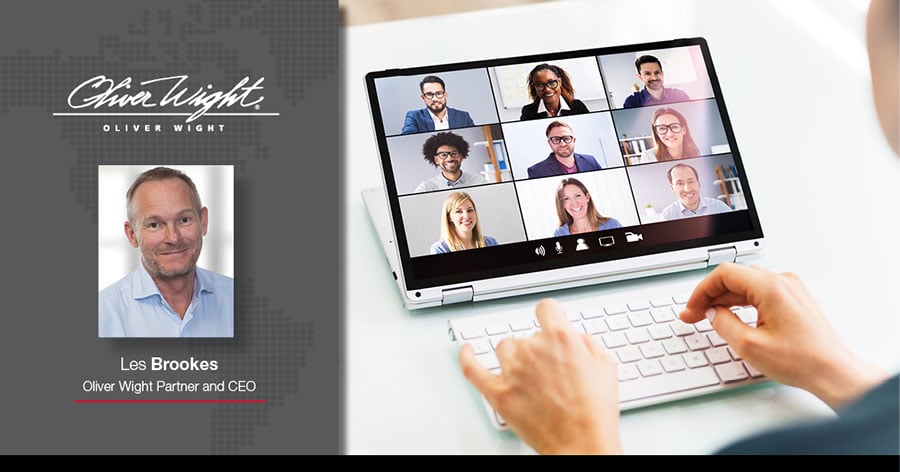Hybrid consultation is a win-win – but only if you follow these rules
07 Mar 2022
Blog

Two things happened on February 24th that will affect how organisations operate in England in the coming months, if not years. First, alarmingly, Russia invaded Ukraine. Business and political leaders worldwide will be closely watching developments, as the war will disrupt global markets and supply chains, with already record energy prices likely to rise further.
However, it was the second thing that happened on February 24th that I’m focusing on today. Namely, all remaining legal restrictions relating to coronavirus ended in England – a pivotal moment in the government’s Living with Covid plan. Whether you agree with the move or not is a moot point. Employees will now be looking for employers to firm up their post-pandemic plans regarding returning to the office.
The same thing is happening around the world. When Microsoft announced plans, on Valentine’s Day, to reopen its Washington state and California Bay Area offices later in the month and revealed its hybrid-working strategy, commentators expected other large companies to follow suit.
The last two years have demonstrated the benefits of remote working in many industries, largely thanks to videoconferencing technology. Most people enjoy the flexibility, efficiency and convenience offered by not travelling to and from work.
Clearly, for most people, five days a week in the office is a thing of the past. While there is no one-size-fits-all template, hybrid working is the future. In the same vein, hybrid consultation is here to stay. It is a win-win scenario for consultants and their clients. But it only works if certain rules are followed.
1 Understand the pros and cons of videoconferencing
Leaders have had more than their fair share of Teams, Zoom, or Meet calls since the start of the coronavirus crisis, but often it’s used as the go-to channel of communication. An old-fashioned phone call can work well. For most of our clients, though, conducting most consultations via videoconferencing is hugely beneficial. It reduces costs for both parties and is an efficient use of time. The biggest plus is that key stakeholders can be gathered together in one – virtual – space, no matter where they are in the world.
One of the most powerful lessons from the last two years is the strength of diversity to drive collaboration, innovation and improve governance. Videoconferencing enables more people to engage in key strategic meetings. With inputs from all around the organisation and across the globe, more people will understand, shape and, in turn, be committed to creating a future state of excellence.
2 Make sure meetings are essential and set a clear agenda
The most successful hybrid-working strategies will hinge on the efficiency and effectiveness of meetings, whether in-person or virtual. No one wants to have their working day interrupted by an aimless discussion or even a meeting about a meeting. As such, we can expect meetings to evolve, so there are fewer of them, and they are shorter but more intense as they stick closely to a clear agenda. Therefore, planning and preparation are vital for both consultants and clients. Sharing meeting minutes, agreeing on actions, and scheduling a follow-up meeting – if required – are also important.
3 Know how to engage people virtually
High energy is crucial when leading a virtual meeting, as is asking people’s opinions. When presenting to clients, you have to be professional, engage with them, and encourage interaction. Admittedly, this is easier to achieve at in-person events, but videoconferencing tools – including polls and question apps – can help prompt reactions and spark meaningful conversations. However, there is a balance to strike between attacking a meeting like a TV presenter and having a relaxed conversation. Judge your audience accordingly.
4 Realise when a face-to-face meeting will add value
As impressive as videoconferencing technology is – and I’ll leave metaverse meetings for another time – there is room for improvement. Still, nothing beats a face-to-face engagement and on-site visit.
Again, you should agree with the client when it’s right to meet physically. What justifies the in-person meeting? Can what you are looking to discuss be done online? Most of the time, the answer will be yes. But for certain situations, in-person meetings are essential. Executive feedback on a diagnostic that will inform the business strategy is best done in the flesh, for instance.
As a consultant, these in-person meetings provide a unique opportunity to understand an organisation’s operations, because the data will only tell you so much. These interactions with decision-makers build trusted relationships and allow both parties to listen and learn, speak candidly, and solve challenges quicker.
Author(s)
-
